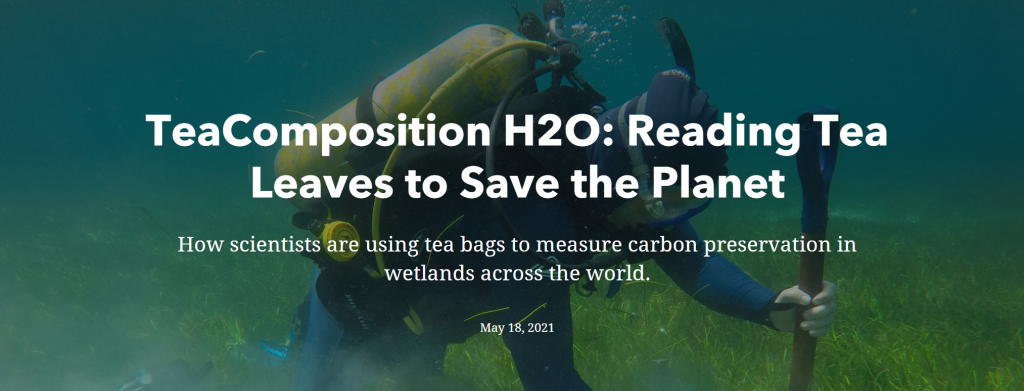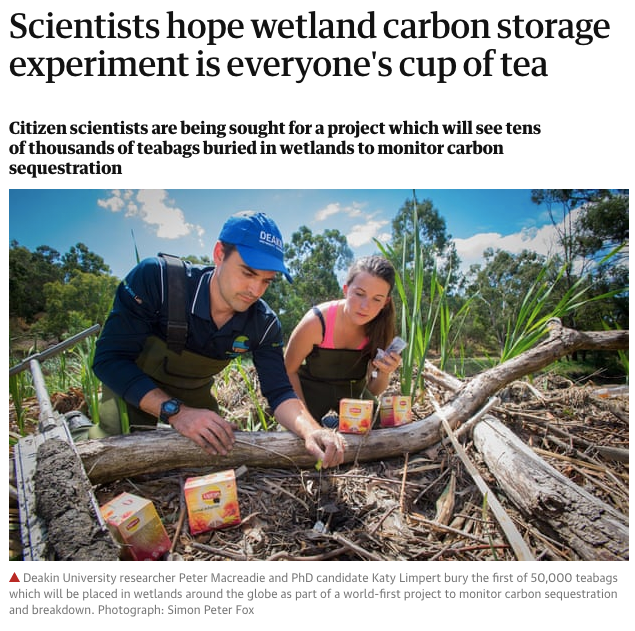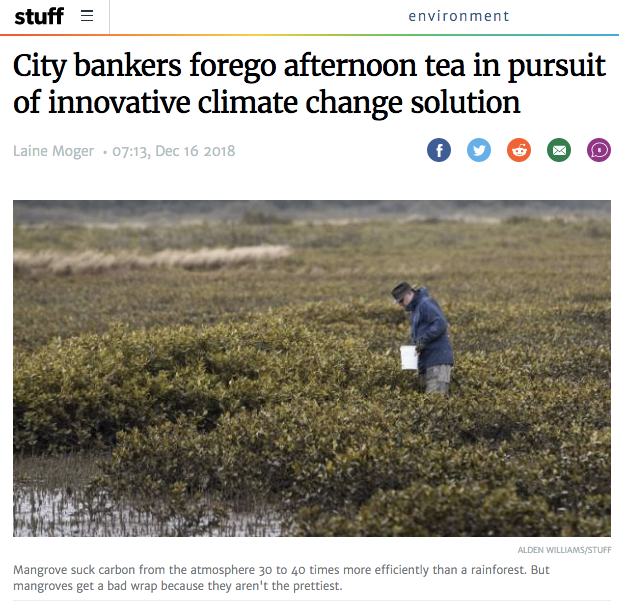TeaComposition H2O
TeaComposition H2O is a global-scale analysis of litter decomposition within wetland ecosystems using household tea bags or Tea Decomposition.
The approach involves a novel, scientific technique for measuring carbon decomposition at low cost with the use of tea bags (Keuskamp et al. 2013).
Two tea types (green and red, made by Lipton) with contrasting decomposability will serve as a model plant litter to elucidate microbial carbon cycling across ecosystems and climatic regions. The main goals are (1) to track the biomass and carbon loss during decomposition, and (2) analyze the microbial communities driving the decomposition process.
Background
Wetlands are among the world’s most effective ecosystems for carbon sequestration by trapping and storing greenhouse gasses naturally. Maintenance or loss of wetland ecosystems will therefore have profound impact on the Earth’s climate.
What is missing, however, is standardized information on how carbon retention varies among wetland types – i.e. why (and how) do some wetlands sequester carbon better than others, and thereby helping offset the atmospheric CO2 pool?
Plant litter decomposition is the key process in the early sequestration/emission stage of the carbon cycle. At the foundation, microbial soil communities dictate the fate of the carbon, whether it be sequestered carbon or carbon emitted as carbon dioxide.
Program Scale
Tea bags have been deployed around the world in coastal wetlands (mangrove, tidal marshes, and seagrass), freshwater wetlands: bogs, fens, riverine, lacustrine) and aquatic ecosystems (seaweeds, streams, ponds).
Project Partners
This work is led by Dr Stacey Trevathan-Tackett from Deakin University’s Blue Carbon Lab. Project partners include Zymo research and TeaComposition.
Selected Media & Publications
-
Djukic et al. 2018. Early stage litter decomposition across biomes. Science of the total Environment 628: 1369-1394.
-
Keuskamp et al. 2013. Tea Bag Index: a novel approach to collect uniform decomposition data across ecosystems. Methods in Ecology and Evolution 4: 1070-1075.
- Microbial decomposition in Australian wetland ecosystems. Presentation at the Australian Mangrove and Saltmarsh Network (AMSN | June 2019)
- TeaComposition H2O. Presentation at the #SWSTwitterSymp2019 (Oct 2019)
- Sediment microprofiling experiments with visiting scientist (Blue Carbon Lab media release| Jan 2019)
- Mangroves: Carbon sequestration superheroes (TenPlay, ScopeTv E:63 Australia | Aug 2018 ) Skip to 20 min mark.
- Teabags buried on Phillip Island hold clues to the secret life of soil (Sydney Morning Herald, Australia | Feb 2018)
- City bankers forego afternoon tea in pursuit of innovative climate change solution (Sunday Star Times, New Zealand | Dec 2018)
- Tea Time in the Wetlands (H2O radio | March 2017)
- Scientists hope wetland carbon storage experiment is everyone’s cup of tea (The Guardian, Australia | Feb 2017)
- Zymo Research Partners with TeaComposition H2O Project (Zymo Media release | March 2017)





